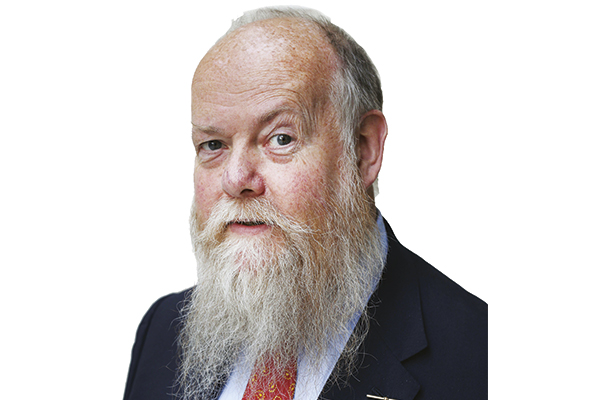At the time of writing, I’m looking forward to a meeting – Zoom, alas – organised by the bishops to “go over the changes for the new translation of the Lectionary” with various interested parties including, interestingly, the Anglican bishop of London, Sarah Mullally. It will happen just before this paper reaches readers.
The matter for discussion is probably going to be the use of inclusive language in the new lectionary, where I expect I’ll be in a minority of one in having no objection to the use of “man” or “mankind” for “everyone”; what’s more I have an active objection to the use of plurals as a weaselly way round a masculine singular (“they who” rather than “he who”) and to degendering words which are unambiguously masculine in Greek (with which I’ve got only a nodding acquaintance) or in Hebrew (of which I know precisely nothing). Psalm 1, for instance, begins, “Happy is the man who …” as a precise translation of the masculine “man” in the original. “Happy are those” doesn’t quite cut it.
These differences are perhaps a reminder that women aren’t homogenous in their approach to language or to anything else … half the human race, in other words, may be as diverse as the other half. What brings me out in boils is the assumption that feminists, themselves diverse, can authoritatively speak for all the rest of us. Among Jews there is, inevitably, lively debate on the matter; I’m looking forward to a briefing from my friend Rabbi Laura Janner-Klausner, who is a feminist scripture scholar.
02 September 2021, The Tablet
Women aren’t homogenous in their approach to language or to anything else

Get Instant Access
Continue Reading
Register for free to read this article in full
Subscribe for unlimited access
From just £30 quarterly
Complete access to all Tablet website content including all premium content.
The full weekly edition in print and digital including our 179 years archive.
PDF version to view on iPad, iPhone or computer.
Already a subscriber? Login



User Comments (1)
As a technical (i.e. non-literary) translator, when translating legal documents into English, for convenience of drafting, and in accordance with the practice for, say, insurance policies, I use the masculine gender for pronouns (he, him, his). However, to forestall any objections, I always add a translator's note saying that, in accordance with legal drafting practice, the masculine includes the feminine, I feel floored when confronted with a would-be inclusive "they" (as inflected: their, theirs), the use of which lays a draft open to ambiguity or downright uncertainty in the reader's mind.
This rule I apply in a strictly legal context. The use of inclusive pronoun constructions may be appropriate outside that context, or in such fields as family law, where gender inclusiveness often needs to be explicit. Likewise, in the field of economic development, gender sensitivity is mandatory, since women (and, where applicable, children) must be specifically included, thus forestalling attempts by male leaders to appropriate the benefits to men, leaving the other half of their communities bereft - a tangible risk among other shoals in providing development assistance.